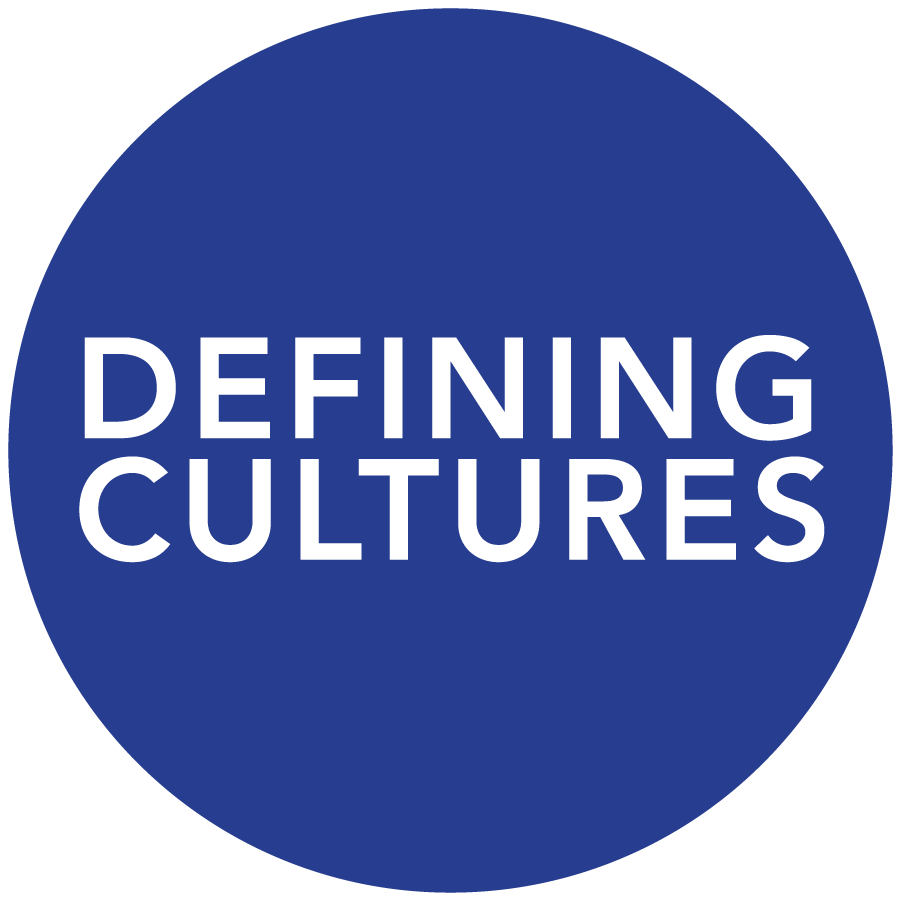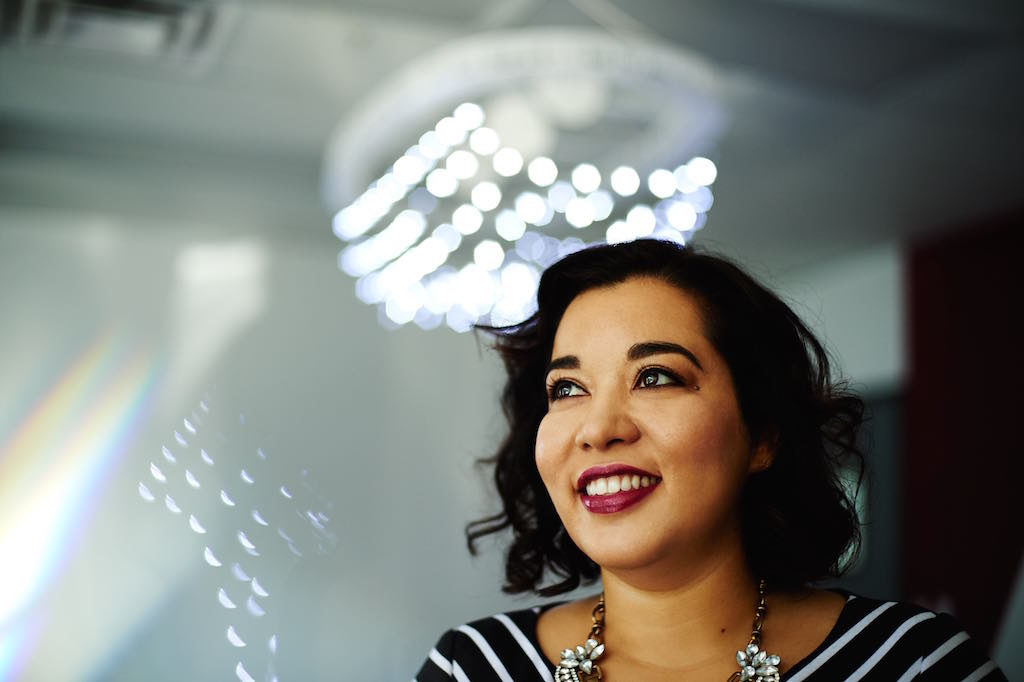
Colima, Mexico, is where it all began.
When Noramay was a toddler, the Cadena’s uprooted to the United States – hope and new opportunities for their new family was front and center.
Los Angeles became their bubble, and where they would live amongst a homogeneous population. “It was +90% Hispanic no matter what neighborhood we lived in…My mom only made it through the 2nd grade, so she can read and write only at a very basic level. She has always been intimidated by learning English…” On the other hand, Mr. Cadena graduated high school. So when he got to the States, he was more prepared to learn and took English night courses.
Noramay’s childhood is flushed with memories of a humble beginning. “I remember our neighbor taking her garden hose and putting it through our bathroom window so that we’d have water to brush our teeth and flush the toilet. And yet, so many of my friends were going through experiences like that. It wasn’t weird or embarrassing. It was just life.”
Chi Chi’s Notes: Noramay’s upbringing was far from privileged, but the Cadena’s understood the importance of a college education for their children…and Noramay was set to be the first to change the family’s course, as evidenced in the video below.
She was a brilliant student at San Fernando High School, and was in the math, science and technology magnet program, but she still had no clue what she wanted to do in life.
10th grade: $10 per hour in an air-conditioned office was Noramay’s aim after high school.
11th grade: she was introduced to two things: the Massachusetts Institute of Technology (MIT) and a life twist – she was about to become a teenage mom.
• “It’s not that I didn’t think I could do it, it just wasn’t even in my line of sight.” •
- Noramay on her mental reality in high school
A gentleman with short hair, jeans and white tennis shoes, visited Noramay’s class. He was a student recruiter for MIT’s Admissions Office, and had graduated from San Fernando High School a few years back. “Just as he had been recruited when he was in high school, he was doing the same for others; he came back wanting to talk to students who were taking calculus.”
Mind you: at the time, Noramay didn’t even know what an engineer was and had never heard of MIT.
He told the class that he grew up around the corner. His family circumstances and experience struck a chord – his dad worked as a janitor, and yet he ended up at one of the best engineering schools in the country.
For the first time in life, Noramay grasped that there was another world outside of her bubble.
“It’s not that I didn’t think I could do it, it just wasn’t even in my line of sight…he opened up that realm of possibility and was pretty persistent. You need to apply. Have you applied? Have you submitted your application? How are you doing with your letters of recommendation?”
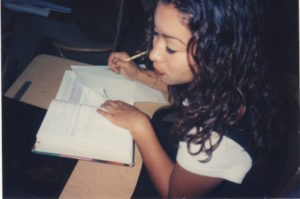
It was a hand-held venture, but his proactive behavior and that of teachers and counselors paid off. “I think about what my life may have been if I hadn’t had that tap on the shoulder.”
Noramay applied to MIT and was accepted!
She told her dad, but he was a bit confused why the school had to be so far. He said, “‘Aren’t you good enough to go to Cal State, Northridge?’, which is a local university. In his mind, if you’re a good student, you can stay home and have an easy commute. And if you weren’t, then you had to leave the state. It was cute. [laughter]”
The next step in her decision-making was a free trip to check out the campus in Cambridge, MA.
On her way there, she still didn’t view it as an opportunity she could take advantage of because “At the time, my parents had lost their factory jobs. I was the only one working, albeit part time and we had family members bringing us groceries. I had 2 younger siblings and my daughter. I just kept thinking, ‘I can’t do this. This is a luxury that I can’t take for myself because my family needs me here.’”
MIT pulled out all the stops, and Noramay fell in love with the campus and community. “…I was very open about bringing my daughter with me and what I saw as challenges – financially and logistically. I was inspired by how much MIT was willing to help and support, and how much focus they placed on my potential over my circumstance, and that’s how I made the decision to enroll.”
But get this…when she returned to Cali, Noramay still “…didn’t really understand how big this was until somebody called me from the LA Times and said they wanted to interview me and my parents because…a teen mom was headed to MIT.”
Once the article was released, an incredible amount of attention flooded the Cadena family. Teachers started reaching out and congratulating her parents. “We had radio and TV stations calling. Once the Spanish speaking stations started calling, that’s when they really understood that this was a big deal and an incredible opportunity for me.”
With haste, her life began to turn direction the last summer of high school. A senior manager at Boeing reached out to Noramay with a paid engineering internship offer. She quickly ditched her gig at a Ross discount clothing store, and started her engineering career without even being enrolled in college yet.
Everyone was rooting for Noramay – family, teachers and the entire community. So much so that donations started pouring in. “People started sending me encouraging cards and checks…I got a few $500, $300, $100 checks from people who didn’t even know me, yet wanted me to be successful.” This moment made a big difference in Noramay’s life, and she continues to be fueled by a sense of responsibility. “Now I do so much of that. I’ll read an article and I’ll write a little note and track down the person and send a check because I know how much it meant to me.”
At 17, her final year of high school, Noramay gave birth to a beautiful daughter, Chassitty, and went on to graduate #2 in her class of over 700.
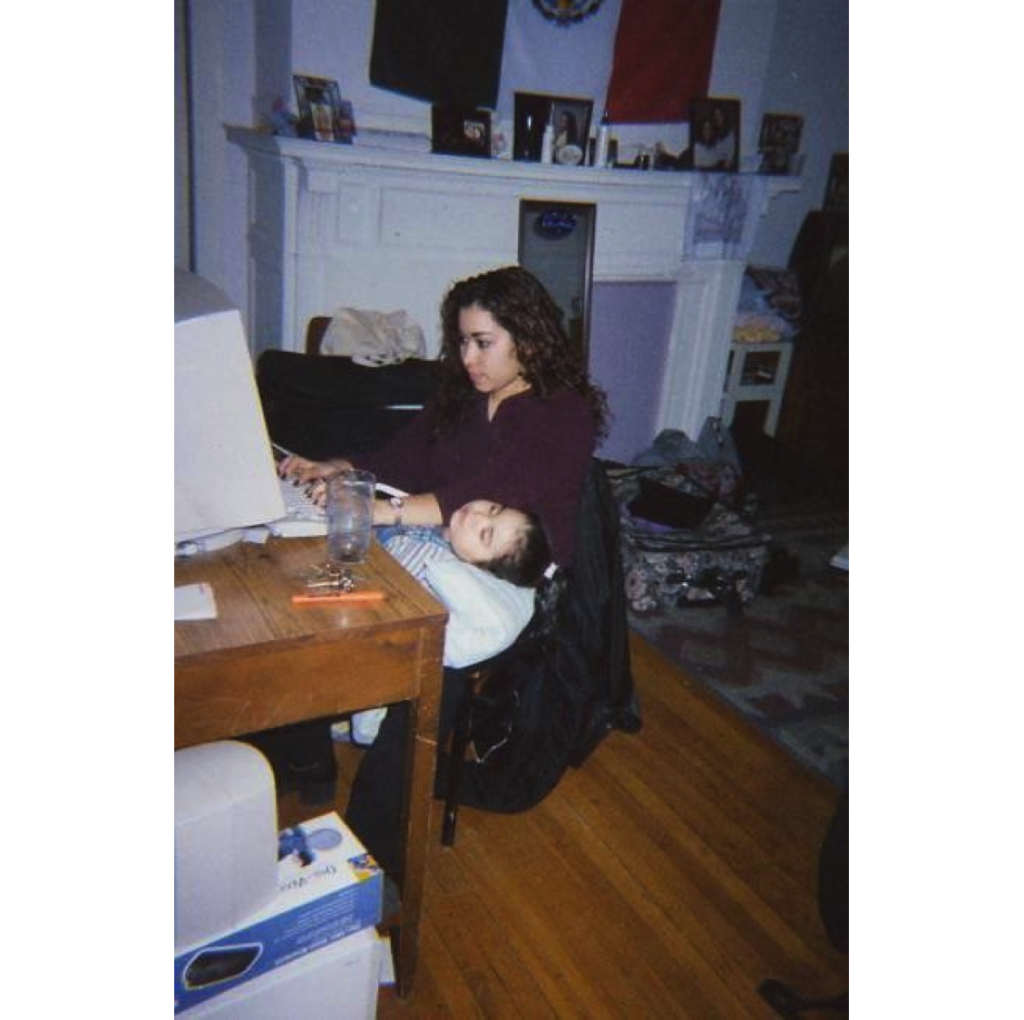
• “If I can get through this week, I’m ok.” •
- Noramay on when life got hard at MIT
“It wasn’t until I left for college and moved to the East Coast that I realized that we were poor…There were so many things happening at home that were tough and challenging that I kept thinking, ‘I’m here for the long run. And I know it’s going to be hard, but if I really want a different life, this is the only way that I can achieve that.’…I knew that I didn’t want my daughter to ever have to go through living without water or electricity.”
Thankfully, she was surrounded by a support system in college. A close knit group of first-generation Latinos, classmates, instructors and even the shuttle bus driver: “After the first few times my daughter and I had got in his van, he went out and purchased a car seat…And in the winter, he would say, ‘If you’re ever going to take my shuttle, just call me and let me know and I’ll get off one stop before you and set up the car seat so that you don’t have to wait out in the cold.’ Who freakin does that?”
And when life got hard, Noramay would look at her schedule and say, “If I can get through this week, I’m ok.”
In 2003, Noramay went on to graduate from MIT with a bachelor of science in mechanical engineering. She moved back to LA and accepted a full-time job with Boeing, who would later relocate her to their Everett office in Washington state after a couple of years.
In Puget Sound, Noramay starting seeing leadership opportunities that she wanted to take advantage of, but she noticed a common denominator: people in the positions that were of interest to her had MBA degrees. Noramay knew what she had to do next.
After six years working on satellites and airplanes for Boeing, they sponsored Noramay’s journey back to grad school.
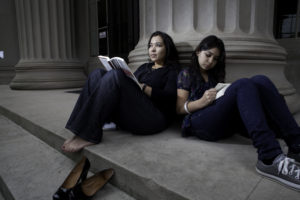
Noramay and her then-11 year old daughter returned to Cambridge, MA in 2009. “This time around was so easy because we’d both grab our backpacks and go to the library to study or do homework…She got to go to my school events; I got to go to hers… And for the first time, we really got to experience New England and do all the stuff we couldn’t afford to do ten years earlier as undergrads. It gave us a do over…”
In 2011, Noramay graduated from MIT with two masters – an MBA and a master’s in systems engineering.
She returned to LA and her career hub, Boeing. And in 2013, Noramay and 4 other MIT ladies, who were all first-generation college grads and had a similar ‘tap on the shoulder’ experience, decided to launch a non-profit called Latinas in STEM Foundation. Their mission? To inspire and empower Latinas to pursue, thrive and advance in STEM fields nationwide through programming, workshops and events. And parents would also be able to say, ‘Yes, it can be done by my daughter and this can be her story.’
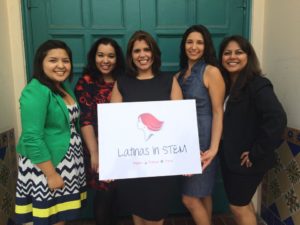
“That nonprofit was extremely rewarding but also helped me realize that I couldn’t sustain a full-time job [at Boeing] and a full-time non-profit…I needed something that combined both job and passion.”
Noramay started looking for startup opportunities in LA on AngelList (angel.co). That’s where she met her now business partner, Shaun Arora. And after meeting over coffee, Noramay decided it was time to leave her 12-year career at Boeing. So within a few weeks, she quit and helped launch Make in LA – an early stage accelerator and venture fund created to support technology enabled hardware companies (IoT, robotics, wearables, VR, etc.).
• “In college, I never thought I’d be running my own company or investing other peoples money.” •
- Noramay on being a Co-founder & Managing Director at Make in LA
Since the fall of 2015, Make in LA has invested over $1MM in 11 early stage hardware companies building diverse products – from wearables to virtual reality gear to rockets. “Here at Make in LA, we’re pretty passionate about recruiting underdogs, so when we recruit companies to come through our program or companies to invest in, we’re very purposeful about looking in areas where other venture capitalists may not looking. We form alliances with women, LGBTQ, Latino, African-American communities and are constantly trying to drag out brilliant people who need access to opportunity and resources.”
For the past 2 years, Noramay is finally doing something that fulfills her. “It’s been the most incredible job I’ve ever had…In college, I never thought I’d be running my own company or investing other peoples money. It’s yet another amplification of the realm of possibility we often restrain ourselves to.”
This summer, Noramay will have a nearly 19-year parenting gap when her son enters the world. As for Chassitty, she’s a freshman at San Francisco State University studying business and marketing.
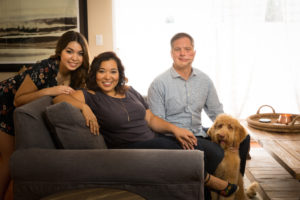
Her advice to someone who may be struggling with their identity:
Find community.
“The hardest part about struggling with identify is feeling like you don’t belong and having everything around you reinforce that feeling.
For example: I still suffer from the imposter syndrome. There are times when I go to meetings and say, ‘I’m the only woman. I’m the only person of color. I’m the only first generation college grad. Do I really belong here?’ And then the group begins to reinforce the homogenous nature of their circle…every piece of small talk is another reminder of, ‘You don’t fit in.’
That’s when it’s important to find the small communities where I do fit in. Maybe it is a ‘people of color in tech’ meetup group, a ‘women in venture capital’ networking event, or an emerging manager summit. These events help feed my soul and remind me that there are others breaking ground in various ways and that we share struggle attributes. That re-centering helps us all continue to push for identity and acceptance in other circles.”
Her advice to her 16-year-old self:
Personally: “Respect yourself – show people how to treat you by how you treat yourself. Make choices that preserve your options and freedom.”
Professionally: “Don’t worry about the rest of your life. Worry about the next month and semester and year. You have the rest of your life to try things and pivot, so give yourself every opportunity to discover and learn now.”
“I think we put so much pressure on young people to know what they want to do and to pick a career and to commit. We should instead advocate adding value in multiple settings – academically, socially and professionally – as they also remain open and hungry for experiences. This can lead to happier people adding more value to the world.”
• • •
- Images courtesy of Noramay Cadena
